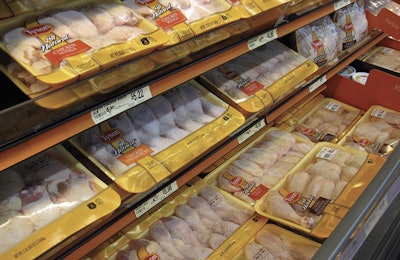
A growing number of consumer purchasing decisions are influenced by food label claims that include the environmental impact of production methods, revealed the latest Fatitudes survey by Cargill.
The survey found that over half of global consumes (55%) indicated that a sustainability label claim would make them more likely to purchase a packaged food item, a four-point increase over the company’s 2019 survey results.
“Our latest findings clearly demonstrate that messages surrounding sustainability are having an impact on consumers,” Nese Tagma, managing director of strategy and innovation for Cargill’s global edible oils business, said in a statement.
Consumers, led by Gen Z and millennials, are becoming increasingly thoughtful about what they consume. This means that values like sustainability now play a larger role in purchasing decisions and could continue to impact product sales going forward.
In addition, although the term sustainability has long associated only with environmental issues, it has transformed into a catch-all term that also encompasses animal welfare, social and other issues.
Label claims are important to poultry consumers
Shoppers put a lot of value in package or food label claims. In a 2020 working paper from Purdue University economist Jason Lusk, consumers were willing to pay a premium for chicken that is labeled hormone-free, even if they know the food label is superfluous.
In the case of the Cargill survey, respondents ranked terms like “sustainably sourced” and “conservation of natural resources” above more specific terms such as Fair Trade, reduce packaging and fair/living wages.
In the U.S., 37% of respondents indicated that they were more likely to purchase a packaged product if it had a sustainability claim, up 6 points from 2019. Survey respondents from other countries indicated a higher interest, including Brazil (74%), India (67%), Mexico (66%) and the UK (51%).
The global survey asked 6,000 primary grocery shoppers in 11 countries about their awareness, perceptions and behaviors around packaged foods.


















